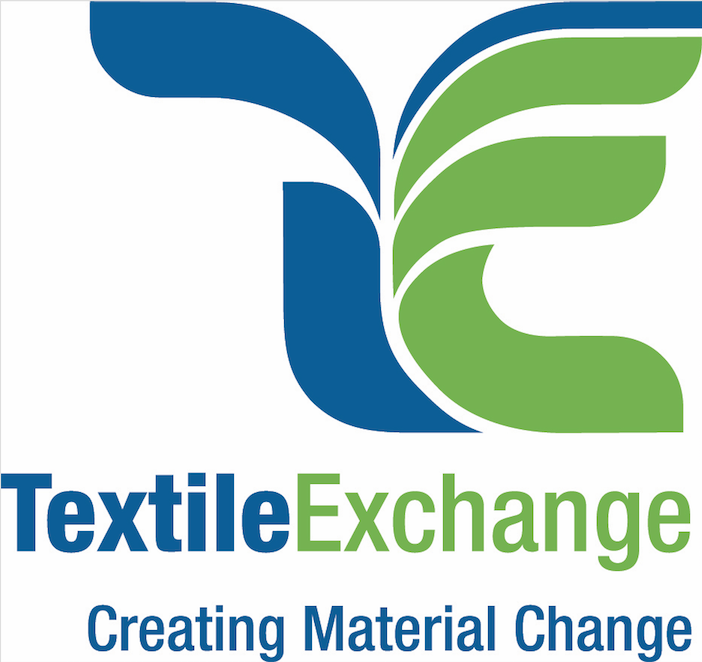Textile Exchange rPET Commitment Challenge
Published 10-12-17
Submitted by Textile Exchange
More than 45 renowned textile, apparel and retail companies—including major brands such as adidas, Dibella, Eileen Fisher, Gap Inc., H&M, IKEA, Lindex, MetaWear, Target and Timberland—have committed or are supporting an increase in their use of Recycled Polyester (rPET) by at least 25% by 2020, it was announced today at Textile Exchange’s annual Textile Sustainability Conference, where more than 500 textile and apparel leaders have come together to discuss the most important sustainability issues facing the industry.
The pledge was organized by Textile Exchange, a global non-profit that promotes the adoption of preferred fiber and materials, integrity and standards and responsible supply networks, through its Recycled Polyester Working Group. The participating companies represent the diverse elements of the value chain, including brands, retailers, suppliers and associated industry organizations. “We believe that supporting, on a pre-competitive basis, investment in further developing rPET production around the globe, will lead to more efficient supply chains and increase the availability of more sustainable fiber choices in the market,” said Karla Magruder, Textile Exchange Board Member and Sustainability Consultant, who led the effort through the non-profit’s rPET Working Group.
The commitment will be tracked via participation in the Polyester Module of Textile Exchange’s annual Preferred Fiber and Materials Benchmark Survey. The baseline for measuring progress will be the usage published in the 2017 Textile Exchange Preferred Fiber and Materials Market Report (PFMR.) According to the PFMR, participant rPET usage is 47,407 mt. A 25% increase by 2020 is projected to provide the following benefits:
2,868,000,000 bottles diverted from landfill.
35,329,509 kg reduction in human toxicity.
1,849,464 MJ saved on primary energy demand.
122,823 kg reduced Co2.
Sweden-based global furnishings company IKEA is one of the companies that accepted the challenge. “We are committed to use resources with the utmost efficiency and turn waste into resources,” said IKEA Category Area Manager, Textiles Lena Julle, who is globally responsible for all supply chain activities related to textiles and who sets the company’s textile material direction and agenda. “The IKEA ambition is to not use any virgin oil based polyester in textiles by 2030. To commit to use 25% more rPET by 2020 is a natural step towards our ambition."
New Hampshire-based outdoor lifestyle brand Timberland also signed on. “We’re excited to increase not only the amount of recycled polyester we source, but also the depth of our engagement within the rPET supply chain.” said Zachary Angelini, Timberland’s Environmental Stewardship Manager. “We believe rPET can go beyond environmental impact to have social benefits for vulnerable populations. We’re especially excited to scale the effort through our partnership with Thread, a B Corporation that transforms trash from the developing world into recycled polyester, strategically creating transparent and dignified supply chains in Haiti, Honduras and Taiwan.”
The ultimate goal is to substantially increase the global availability of rPET, and drive rPET production efficiencies ultimately making it more accessible to all. In addition, Magruder said, the Working Group seeks to identify and support more sustainable practices under Sustainable Development Goal 12 (Responsible Consumption and Production), which encourages “industries, businesses and consumers to recycle and reduce waste.”
Reducing the use of virgin polyester, which is made from non-renewable feedstocks, will favorably impact SDG Target 12.2 designed to achieve the sustainable management and efficient use of natural resources, including reducing material footprint under SDG Target 12.2.1.
ABOUT TEXTILE EXCHANGE
Textile Exchange, founded in 2002, is a global nonprofit organization that works closely with all sectors of the textile supply chain to find the best ways to create positive impacts on water, soil, air, animals, and the human population created by the textile industry. Textile Exchange accomplishes this by providing the knowledge and tools the industry needs to make significant improvements in three core areas: Fiber and Materials, Integrity and Standards, and Supply Network. A truly global organization, Textile Exchange is headquartered in the U.S. with Staff and Ambassadors located around the world. To learn more about Textile Exchange, visit: www.TextileExchange.org and follow us on Twitter at @TextileExchange.
###

Textile Exchange
Textile Exchange
Textile Exchange is a global non-profit that works closely with our members to drive industry transformation in preferred fibers, integrity and standards and responsible supply networks.
More from Textile Exchange

